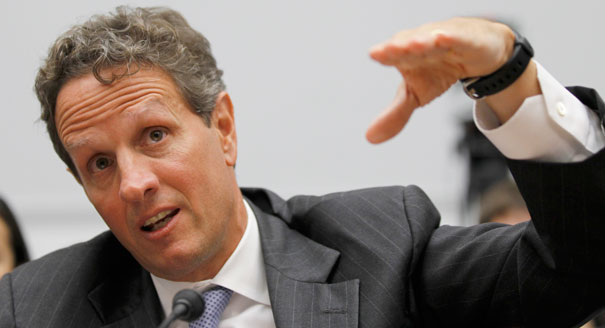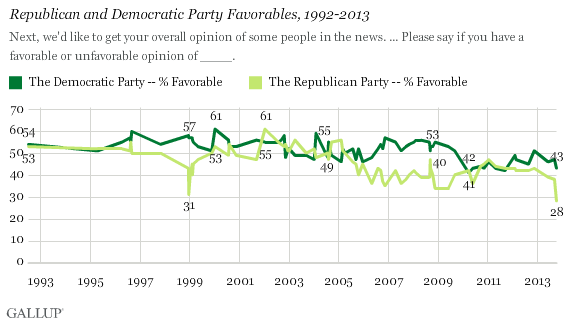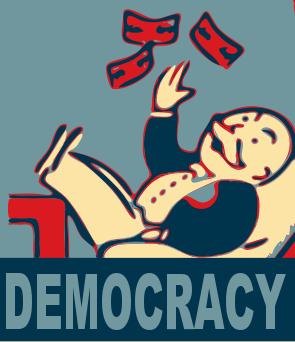
“As for Clinton, well, it’s not entirely her fault, I guess — unlike Obama, she’s been with us for a decade and a half now, and is nothing if not a known quantity. But she came across to me as the same cautious, methodical, triangulating centrist she’s shown herself to be over the past fifteen years in public life, and it’s getting harder to imagine myself being anything but underwhelmed by her as a candidate in the general election.”
Of course, the 2008 primaries thereafter grew quite heated, and, suffice to say, I didn’t think HRC accorded herself very well. So instead of the cautious, methodical, triangulating centrist we knew, I and millions of others took a gamble on Hope and Change…and ended up with a cautious, methodical, triangulating centrist regardless.
So here we are six years later, with an American electorate that has moved demonstrably to the left, and the former Secretary of State and presumptive Democratic nominee just held her first almost-a-candidate townhall on CNN. And what have we learned so far about the all-new, tanned, rested, and ready, 2016 iteration of Hillary Clinton?
1) She thinks Edward Snowden pals around with terrorists. “I think turning over a lot of that material—intentionally or unintentionally—drained, gave all kinds of information, not only to big countries, but to networks and terrorist groups and the like. So I have a hard time thinking that somebody who is a champion of privacy and liberty has taken refuge in Russia, under Putin’s authority.”
2) Her favorite book is…the Bible. “[T]he Bible was and remains the biggest influence on my thinking. I was raised reading it, memorizing passages from it and being guided by it. I still find it a source of wisdom, comfort and encouragement.” Edgy!
3) She won’t take a position on Keystone. “‘I can’t respond,’ she said…’This particular decision is a very difficult one because there are so many factors at play.'”
4) She was actually against the Iraq War last time around, but just couldn’t come out and say it because she supports the troops. “[I]n fact, in the Democratic Party at that time, the smart political decision, as so many of my colleagues did, was to come out and say ‘Terrible mistake, shouldn’t have done it,’ and you know blame the Bush administration. I had this sense that I had voted for it, and we had all these young men and women over there, and it was a terrible battle environment…So I felt like I couldn’t break faith with them.”
5) By the way, those troops should still be in Iraq right now. “When — President Bush decided, before President Obama became president, that we would leave Iraq in 2011, the United States would end its combat mission, unless the Iraqi government agreed to ask us to stay, under the same conditions that we have all around the world. It’s called a status of forces ingredient. I was involved in a lot of the efforts to come up with what our offer would be. And we made such an offer to then Prime Minister Maliki. And he would not accept the status of forces agreement…[W]e knew Iraq would be quite dangerous for a long time, unpredictable, at the very least — you have to have the host government, in this case Iraq, say, OK, here’s what we want…We didn’t get that done. And I think, in retrospect, that was a mistake by the Iraqi government.”
6) She won’t come right out and endorse paid maternity leave in America. “I think, eventually, it should be, but, right now, we’re seeing some — some very good proposals being implemented in other parts of the country, so that we have answers…I don’t think, politically, we could get it now.” By the way, you know who else doesn’t have paid maternity leave? Lesotho, Papua New Guinea, and Swaziland. That’s it.
7) She won’t come right out and say racism may be a factor in anti-Obama sentiment. “Well, I know that — I don’t want to — I don’t want to say that I verify that, because that would be generalizing too broadly. I believe that there are people who have trouble with ethnicity, with race, with gender, with sexual orientation, you name it. And therefore, they are not developing a reasoned opinion — even if it’s an opinion in opposition, but they are a reacting on a visceral stereotypical basis. And that’s unfortunate.” YES, Madam Secretary. The answer here is “YES.”
8) Her family is apparently shielding wealth from the estate tax, a tax both she and the former President support. A common move among 1%’ers, but nonetheless one that doesn’t inspire confidence.
And so on. Secretary Clinton has moved left on immigration (though she wouldn’t badmouth Obama’s draconian deportation policy), on marijuana (though she said medicinal marijuana “needs more research” and gave the “let the states lead the way” hedge on decriminalization), and on gay marriage (she came out in support…last year.) In all of these, she’s lagging behind the country as a whole, much less the Democratic Party.
TL;DR: Secretary Clinton is still, indisputably, the same cautious, methodical, triangulating centrist as ever. And yet, for some reason — even though it’s hard to think of a single solitary stance she’s taken that would move our party in a new and progressive direction — she’s not only the party of the left’s presumptive standard-bearer — For all intent and purposes, she’s running unchallenged!
Politics these days is depressing, and no mistake.






